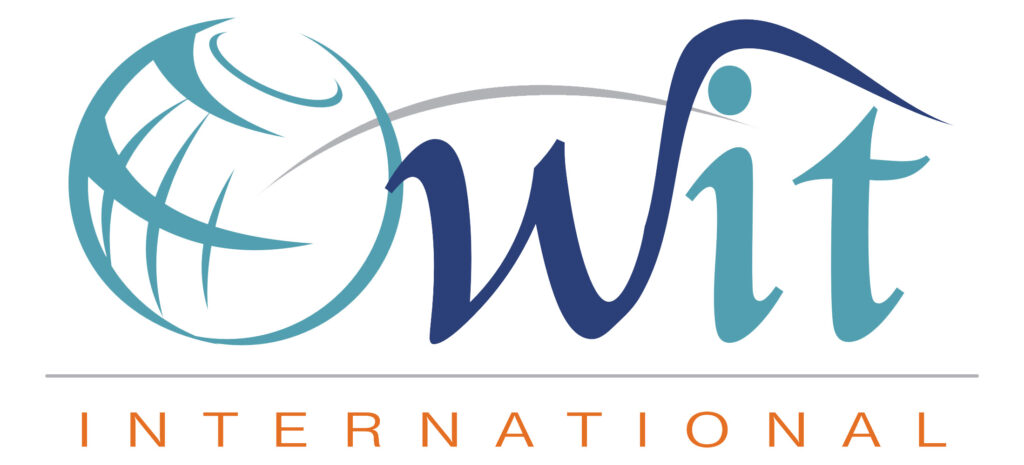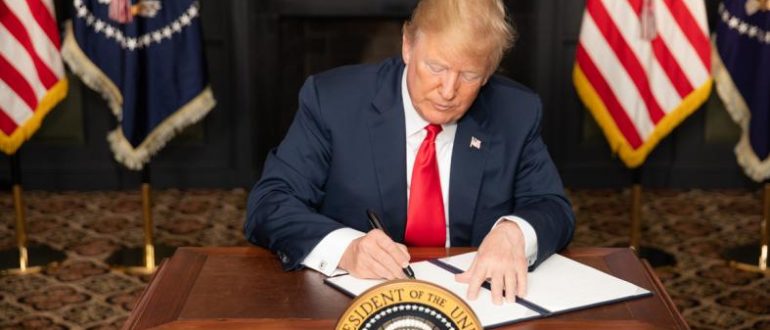On May 8, 2018, President Trump announced the U.S. withdrawal from the Joint Comprehensive Plan of Action (“JCPOA” or “Iran Nuclear Deal”) which involved an agreement between Iran, the United States, Russia, China, France, Britain and Germany to ensure a peaceful Iranian nuclear program. President Trump previously voiced his criticisms of the Iran Nuclear Deal on numerous occasions, including in October 2017 and January 2018 when he refused to certify Iran’s compliance with its nuclear commitments. Today, however, marked the first step toward a full scale revival of U.S. nuclear sanctions against Iran that were suspended in connection with the JCPOA.
According to a contemporaneous Statement by Department of Treasury, Secretary Mnuchin, the Office of Foreign Assets Control (“OFAC”) will take immediate action to implement the President’s decision. The National Security Presidential Memorandum (“NSPM”) directs the Secretary of State and the Secretary of Treasury to begin taking steps immediately to reimpose all U.S. sanctions lifted or waived in connection with the JCPOA no later than 180 days from the date of the NSPM. Following November 4, 2018, OFAC expects all the U.S. nuclear-related sanctions lifted under the JCPOA will be back in effect.
According to Frequently Asked Questions issued by OFAC, sanctions will be re-imposed subject to certain 90 day and 180 day wind-down periods. At the conclusion of these wind-down periods certain suspended sanctions will come back into full effect. Waivers issued in accordance with the JCPOA that were in effect prior to May 8, 2018 will be replaced with waivers to provide for an appropriate wind-down period.
In addition to re-imposing sanctions suspended under the JCPOA, the President is revoking the authorities granted to U.S. persons by both general and specific license in connection with the JCPOA. OFAC intends to replace General License H, General License I, and the general licenses related to the import or Iranian-carpets and foodstuffs with narrowly scoped authorizations to allow U.S. persons and, as appropriate, U.S. owned or controlled foreign entities, to engage in all transactions ordinarily incident and necessary to wind down activities that were previously authorized by these licenses.
The 90-Day Wind Down: August 6, 2018 Deadline
The following sanctions, and sanctions on services associated with these activities, will be re-imposed on August 6, 2018:
- Sanctions on the purchase or acquisition of U.S. dollar banknotes by the Government of Iran;
- Sanctions on Iran’s trade in gold or precious metals;
- Sanctions on the direct or indirect sale, supply, or transfer to or from Iran of graphite, raw, or semi-finished metals such as aluminum and steel, coal, and software for integrating industrial processes;
- Sanctions on significant transactions related to the purchase or sale of Iranian rials, or the maintenance of significant funds or accounts outside the territory of Iran denominated in the Iranian rial;
- Sanctions on the purchase, subscription to, or facilitation of the issuance of Iranian sovereign debt; and
- Sanctions on Iran’s automotive sector.
The following authorizations will be revoked on August 6, 2018:
- The importation into the U.S. of Iranian-origin carpets and foodstuffs and certain related financial transactions pursuant to general license under the Iran Transactions and Sanctions Regulations, 31 C.F.R. Part 560;
- Activities undertaken pursuant to specific licenses issued in connection with the Statement of Licensing Policy for Activities Related to the Export or Re-export to Iran of Commercial Passenger Aircraft and Related Parts and Services (JCPOA SLP); and
- Activities undertaken pursuant to General License I relating to contingent contracts for activities eligible for authorization under the JCPOA SLP.
180-Day Wind Down: November 5, 2018 Deadline
The following sanctions, and sanctions on services associated with these activities, will be re-imposed on November 5, 2018:
- Sanctions on Iran’s port operators, and shipping and shipbuilding sectors, including on the Islamic Republic of Iran Shipping Lines (IRISL), South Shipping Line Iran, or their affiliates;
- Sanctions on petroleum-related transactions with, among others, the National Iranian Oil Company (NIOC), Naftiran Intertrade Company (NICO), and National Iranian Tanker Company (NITC), including the purchase of petroleum, petroleum products, or petrochemical products from Iran;
- Sanctions on transactions by foreign financial institutions with the Central Bank of Iran and designated Iranian financial institutions under Section 1245 of the National Defense Authorization Act for Fiscal Year 2012 (NDAA);
- Sanctions on the provision of specialized financial messaging services to the Central Bank of Iran and Iranian financial institutions described in Section 104(c)(2)(E)(ii) of the Comprehensive Iran Sanctions and Divestment Act of 2010 (CISADA);
- Sanctions on the provision of underwriting services, insurance, or reinsurance; and
- Sanctions on Iran’s energy sector.
OFAC announced that it will revoke General License H and replace it with a temporary authorization to wind down activities that were previously authorized by General License H. On November 5, 2018, the authorization for U.S.-owned or -controlled foreign entities to wind down certain activities with the Government of Iran or persons subject to the jurisdiction of the Government of Iran that were previously authorized by General License H will end.
SDN Designations
Finally, as a result of the U.S. withdrawal from the JCPOA, certain individuals and entities previously removed from the Specially Designation Nationals and Blocked Persons List (“SDN List”) may be redesignated, including any persons meeting the definition of “Government of Iran” or “Iranian Financial Institution” that were moved to the List of Persons Blocked Solely Pursuant to EO 13599 (“EO 13599 List”). As a result, any transactions after November 5, 2018 with persons on EO 13599 List that are moved back to the SDN List will be subject to secondary sanctions.
Impact of the U.S. Withdrawal from the JCPOA
The foreign policy shift announced by the President has sweeping implications for any U.S. or foreign business or financial institution that took advantage of easing restrictions on transactions involving Iran following implementation of the JCPOA. While the announcement contemplates allowing for wind-down periods, the compliance and business implications of unwinding – in some cases – entire businesses focused on the emerging Iran market will necessitate a diligent and careful examination of current operations and an evaluation of the wind-down activities permitted by the revamped waivers.
The abandonment of the JCPOA SLP has significant implications for commercial aviation companies. OFAC will no longer consider license applications related to the export or re-export to Iran of commercial passenger aircraft and related parts and services. Furthermore, OFAC intends to revoke any specific licenses issued pursuant to the JCPOA SLP, and issue an authorization for a wind-down period to end on August 6, 2018. Applications will be considered under the safety of flight statement of licensing policy at 31 C.F.R. Part 560.528. General License I which authorizes U.S. persons to enter into and engage in transactions ordinarily incident to negotiations of and entry into contingent contracts for activities eligible for authorization under JCPOA SLP will also be revoked.
Foreign subsidiaries of U.S. Persons will no longer be able to rely on General License H, which authorized U.S.-owned or –controlled foreign entities to engage in certain activities involving Iran. The wind-down of these activities must be completed by November 4, 2018. Safeguards put in place at U.S. companies to ensure no U.S. person involvement in General License H activities may pose unique compliance challenges when it comes to winding down the activities previously authorized pursuant to this license.
While OFAC has not yet issued new authorizations specifying the scope of authorized wind-down activities, given the short time periods allotted for completing a full withdrawal, businesses impacted by today’s announcement should begin taking steps immediately to evaluate activities impacted by the U.S. withdrawal from the JCPOA and to prepare a plan of action for ensuring that a full wind-down is complete before the applicable deadline.
*Dana Stepnowsky is an international trade attorney at Wiggin and Dana LLP. Wiggin and Dana’s International Trade Compliance practice represents clients in matters involving the International Traffic in Arms Regulations (ITAR), the Export Administration Regulations (EAR), embargo and sanction regimes administered by the Office of Foreign Assets Control (OFAC), the Bureau of Alcohol, Tobacco, Firearms and Explosives (BATFE), government contract disputes, counterfeit parts, the Truth in Negotiations Act (TINA), the False Claims Act (FCA), the Foreign Corrupt Practices Act (FCPA) and other trade-related regulations. For more information, please contact Dana at dstepnowsky@wiggin.com.


